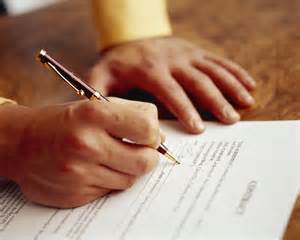 Renting a house saves you big bucks on vacation since it’s usually cheaper per night than a hotel. Plus, you have amenities like a washer and dryer, kitchen, full bath and maybe even a large backyard. That doesn’t mean, though, that your vacation home is perfect. Like any home, it’s susceptible to thieves, weather damage or other problems.
Renting a house saves you big bucks on vacation since it’s usually cheaper per night than a hotel. Plus, you have amenities like a washer and dryer, kitchen, full bath and maybe even a large backyard. That doesn’t mean, though, that your vacation home is perfect. Like any home, it’s susceptible to thieves, weather damage or other problems.
You might want to invest in insurance coverage as you rent a vacation home this summer.
Make Sure the Landlord has Property Insurance
You don’t plan to go on vacation and have a terrible time, but accidents, bad weather and mistakes happen. Who will pay the bill if the home’s rotted stair railing fails and sends you tumbling off the steps and into the ER? Can you afford to replace an antique vase you or one of your kids accidentally breaks?
In most cases, the landlord’s insurance will cover these accidents. Always ask if the home is covered before you sign a rental agreement, though, to ensure you’re not left covering the bill that should be the vacation home owner’s responsibility.
Make Sure you Have Insurance
Most homeowner and renters insurance policies cover your belongings if they’re lost, stolen or damaged. This coverage applies whether you’re in your home, at school or at vacation.
It’s a good idea to double check your policy before you travel. Add additional coverage if necessary to ensure you are indeed covered for every possible scenario. Ensure the policy is current and paid in full, too. You don’t want to file a claim while on vacation and discover that your coverage lapsed.
Renting a house can be an affordable, comfortable and fun part of your next vacation. Before you sign a lease agreement, make sure the home and your possessions are insured. The peace of mind helps you truly relax and unwind no matter where your vacation takes you.
Read more
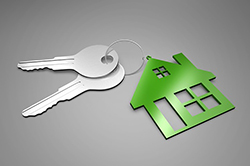 There are those that negotiate for the most reasonable deal possible and those that negotiate for the sake of negotiating. Sellers and buyers alike need to realize that the best deal possible is one where both get what they want in the deal.
There are those that negotiate for the most reasonable deal possible and those that negotiate for the sake of negotiating. Sellers and buyers alike need to realize that the best deal possible is one where both get what they want in the deal.
This isn’t necessarily an easy point to arrive at and is often a lesson in patience. In real estate, there’s something called the X-factor – a potential home buyer spends countless hours viewing properties until they finally find their perfect home. Instead of making an offer based on what the value of the home is to them and what comparable prices are, they immediately start to ponder how much less they should offer than whatever the asking price might be.
Sorry, but there isn’t some tacit X-factor percentage that should just automatically be subtracted from all listing prices. Home owners are more often than not just as eager to sell as the buyer is to buy. If so, the price of the home is usually realistically priced and priced closely to its comps.
Still, the quest for a deal spurs many to start with a low-ball offer that’s not only unrealistic, but often insulting to the seller. If the seller is offended, negotiations usually die before they’ve ever begun. So, any serious buyer shouldn’t have some magic automatic deduction from an asking price in their head. Look at the comps in the area and determine what the value of the home is for you based on how congruent it is to the needs and desires of your family.
How a purchasing price is arrived at for both owner and buyer is a very personal process. When accepting an offer, a buyer considers how fast they need to sell the home, how bad they need to sell the home, pressures from having already purchasing a replacement home, what is owed on the home, and so forth.
On the other hand, two potential buyers can look at the very same property and come up with two very different personal values for the home, depending on how congruent it is with each of their needs, the location of the home, appeal of the home, amenities, school system, and so forth. Aside from personal value, buyers and sellers must also look at the how much a lender will lend on the home based on it appraisal.
Price isn’t the only thing negotiated during the sale of a home. There’s also time lines, what will stay and go from the home, and who will pay for any problems found upon professional inspection. The most important thing for buyers and sellers to remember is that negotiating isn’t about one side getting everything they desire; it’s a give-and-take process of compromise.
To avoid a winner-take-all complex from forming, buyers and sellers should both have a list of top priorities prior to starting any negotiations. As new issues arise during the process, priorities might need to be re-evaluated to see if the priority is truly a must have for the home to change hands.
Many problems, such as fees and repairs, often can be solved by the buyer and seller meeting in the middle. Agreeing to split the costs evenly can be a much better option than wasting time and money to negotiate for weeks. For example, a seller that will pay another mortgage payment because of the additional time spent negotiating might actually find it cheaper to pay half the cost of a minor repair and close the deal before the next note is due.
Sometimes there are legitimate deal breakers. If so, then it just wasn’t the best option for the parties involved. But, before giving up, do try mulling over the troubling aspect of the negotiation for a few days. You can move on to the other areas of the negotiation. If everything else is agreed on, then there may be more encouragement to compromise on the problematic area.
Read more
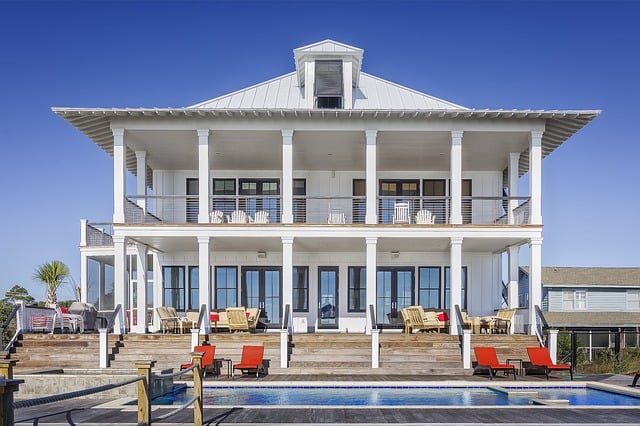
Property owners have a unique opportunity to efficiently rent out their entire home, a spare bedroom or other accommodation through the online service known as Airbnb. For travellers, Airbnb is convenient, web-based platform that provides affordable and flexible alternatives to hotels. For property owners, the tool easily connects various rental units with prospective occupants and makes collecting payments simple and secure.
Despite it’s convenience and the potential for profit, Airbnb is not without its risks for those who decide to list. Before renting out your home or spare room through Airbnb, keep in mind the following tips:
- Acquire the proper insurance.
Proper insurance is key to mitigating the risks associated with Airbnb. Take the time to review your renters or homeowners policy to make sure you have adequate coverage in place.
- Complete a home safety inspection.
Safety inspections can help Airbnb hosts address risks before they balloon into bigger issues. Before listing your property on Airbnb, complete a through home inspection and address all of the safety hazards you identify.
- Screen all guests.
Prior to allowing guests to stay in your home, it’s a good idea to check their background. To begin, ensure that prospective guests are verified through Airbnb. You can also review any connected social media accounts and read guest references through the site. Above all, trust your instincts.
- Set clear rules.
Through Airbnb, you can create guidelines for guests by completing the House Rules, Home Safety Card and House Manual sections of your profile. This allows you to set clear rules for guests around etiquette and safety.
- Establish occupancy limits.
Limiting the number of occupants that can use your property will help ensure that guests are comfortable and safe during their stay. Occupancy limits should take into account the size of the property and local regulations.
- Add a security deposit.
Adding a security deposit to your Airbnb listing can lessen the financial blow in the event of damaged property or another incident.
- Secure your valuables.
When you open your home to guests, there’s the potential that valuables could be damaged or stolen. To protect expensive items, consider moving them into a safety deposit box or to a secure off-site location.
- Protect sensitive information.
Your property isn’t the only thing you need to worry about when inviting guests into your home. To help prevent identity theft, make sure that guests cannot gain access to any files (physical or electronic) that contain sensitive personal information.
- Install smoke and carbon monoxide detectors.
Safety equipment like smoke and carbon monoxide detectors should be installed around the premises to protect guests and your property. Emergency exists should be property labeled as well.
- Child-proof your premises.
It’s likely that some of your guests will have children. To protect younger guests, take the time to properly child-proof your home.
- Keep your accommodations maintained.
Good housekeeping can help guests avoid common injuries such as slips and falls. Prior to each stay, examine your home for any new housekeeping issues that must be addressed.
- Provide contact information.
Always supply your guests with information sheets that indicate local emergency numbers and the nearest hospital. Provide a clear emergency contact number for yourself, as well as back up, for easy guest reference. Also make clear how you should be contacted if the guest has questions or issues arise.
- Supply a first-aid kit.
In addition to providing emergency contact information, having a first-aid kit readily available and fully stocked at all times is important to guest safety.
- Verify compliance with regulations.
Regulations around Airbnb hosting can differ depending on your location and the type of accommodation you are renting out. Double-check that you are compliant with local and state laws before using Airbnb.
- Notify those who could be impacted by your guests.
When you host guests through Airbnb, there is the potential that neighbors or roommates could be impacted. To avoid unnecessary conflict, let your neighbors or roommates know ahead of time that guests will be using your property.
Read more
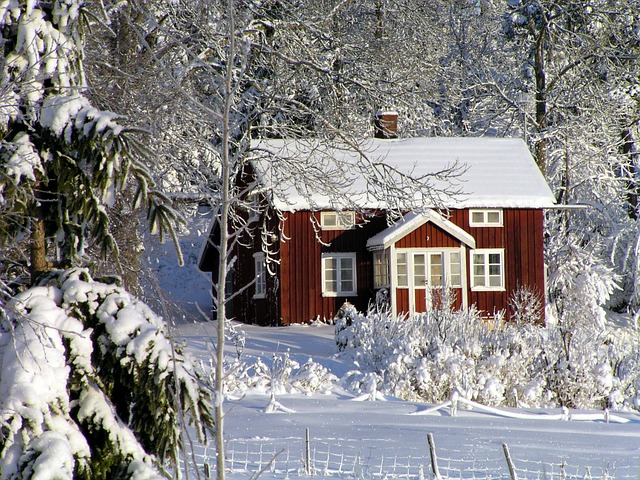
As winter ends and temperatures begin to rise, the accumulating water from melting snow and ice leaves your home susceptible to damage. Protect your home ahead of time to minimize your risk.
Use these four tips to help reduce your home’s risk of snowmelt damage:
- Clear snow from your home’s foundation. Shovel snow away from your home, including stairwells, window wells, downspouts and doors to help prevent water from seeping in through cracks.
- Maintain your roof and gutters. Any heavy snow that has accumulated on your roof should be cleared away to avoid water damage. Keep your gutters clear of debris to avoid ice dams—melted snow that refreezes at night, causing gutter clogs.
- Ensure proper drainage. Make sure your downspout drains away from your home, and keep any street storm sewer drains clear of snow to prevent buildup and freezing.
- Check your sump pump. Test to see that your sump pump is in good working order in case your home experiences flooding. If you notice any small leaks, take care of them before they become a bigger hazard.
Take extra precautions to keep your family safe from potential fireplace damage. If you burn fires often, consider installing new smoke and carbon monoxide detectors in your home.
Read more
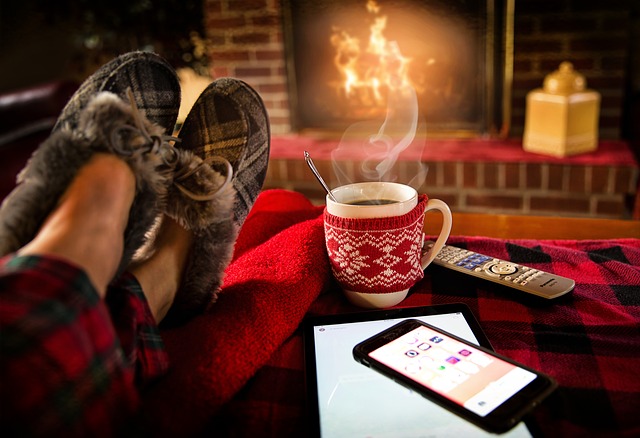
The U.S. Fire Administration states that 75 percent of confined home heating fires occur in the chimney and flue of your fireplace. Performing simple safety measures and maintenance on your fireplace will ensure your family and home stay safe.
Here are some fireplace safety tips to consider:
- Keep it clear. Clear out any debris from the fireplace and keep all flammable items like furniture, blankets and papers a safe distance away at all times.
- Inspect the chimney. Have a certified chimney specialist inspect and clean your chimney annually to reduce the risk of fire and carbon monoxide buildup.
- Start the fire safely. Never burn charcoal or use lighter fluids to light the fire in your home, as they can cause deadly fumes and the potential for explosion.
- Don’t overload the fire. Overloading—putting in more wood, paper and other ignitable materials than necessary—can overheat the walls or roof of your home.
- Keep children away from the fireplace. Give warning about the dangers of fire to deter curiosity, and consider installing a gate around the fireplace to prevent kids from getting too close.
- Put it out. Before leaving your home for the night or going to sleep, ensure the fire is completely out first.
Take extra precautions to keep your family safe from potential fireplace damage. If you burn fires often, consider installing new smoke and carbon monoxide detectors in your home.
Read more
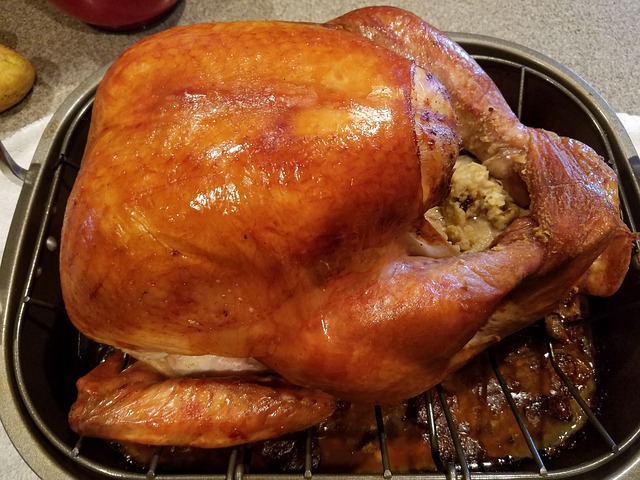
As with any cooking tool, it’s important to take caution when using a turkey fryer as it can be extremely dangerous. Here are some tips to consider when frying a turkey:
- Stay in the area where you are cooking. Leaving the turkey unattended may cause the fryer to overheat, resulting in a fire.
- Use your turkey fryer on a level surface. Anything that might cause the fryer to tip over may result in a hot oil spill.
- Thaw your turkey before cooking. Water from a still-frozen turkey can cause the oil to bubble or splash over the pot.
- Keep small children and animals away from the fryer while it is in use. There is a great risk that a child or pet could run into the fryer, knocking it down and causing serious injury. A safe distance of three to 10 feet away is recommended.
- Have safety equipment ready. Use oven mitts, goggles and an apron while cooking. Have a fire extinguisher nearby in case of emergency, and keep flammable items away from the fryer.
Your Safety Matters!
For your safety, only use a turkey fryer outside and away from your home. Never use a turkey fryer in a garage or on a porch. Also, be sure to keep some distance between yourself and the fryer as you monitor it—you wouldn’t want to accidentally get splashed with hot oil.
Did You Know?
The U.S. Fire Administration states that Thanksgiving is the peak day for home cooking fires. While preparing your Thanksgiving turkey can be a timeless tradition, it’s important to keep cooking safety measures in mind to protect yourself, your guests and your home.
Read more
 Renting a house saves you big bucks on vacation since it’s usually cheaper per night than a hotel. Plus, you have amenities like a washer and dryer, kitchen, full bath and maybe even a large backyard. That doesn’t mean, though, that your vacation home is perfect. Like any home, it’s susceptible to thieves, weather damage or other problems.
Renting a house saves you big bucks on vacation since it’s usually cheaper per night than a hotel. Plus, you have amenities like a washer and dryer, kitchen, full bath and maybe even a large backyard. That doesn’t mean, though, that your vacation home is perfect. Like any home, it’s susceptible to thieves, weather damage or other problems.
 There are those that negotiate for the most reasonable deal possible and those that negotiate for the sake of negotiating. Sellers and buyers alike need to realize that the best deal possible is one where both get what they want in the deal.
There are those that negotiate for the most reasonable deal possible and those that negotiate for the sake of negotiating. Sellers and buyers alike need to realize that the best deal possible is one where both get what they want in the deal.


